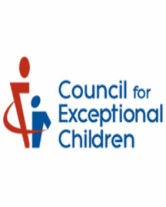Impact of Death on Students with Exceptionalities
Children and adolescents with physical, emotional, and cognitive disabilities are at higher risk for depression and suicide than youngsters without disabilities. Suicidal behavior has been noted in children with mental disabilities as well as in children with superior intelligence. Children with exceptionalities may often suffer from feelings of hopelessness, helplessness, and low self-esteem, which may increase their vulnerability to suicidal behaviors. In addition, students with disabilities have been found to be disproportionately susceptible to abuse, which in turn may trigger suicidal thoughts and actions.
It is estimated that over 90% of suicidal children and youth have associated, serious psychiatric illnesses that include conduct disorder, depression or bipolar illness, abuse of drugs or alcohol, and psychosis.
Many studies have confirmed that children and adolescents with depressive disorders are at high risk for suicidal behavior. Depression can be reliably diagnosed in children as young as 6 to 8 years of age. Estimates of the prevalence of depression among children and youths with learning and/or behavioral problems tend to be higher than those cited for the general population. It is recommended that children who are evaluated for any type of psychiatric disorder should also be evaluated for depression and suicidal tendencies. These students may suffer from isolation, and may have difficulty understanding and expressing feelings.
A variety of assessment models, checklists, observational outlines, and clinical tests are now readily available for school psychologists trained in interviewing techniques and psychoeducational assessments. Additionally, they must not be afraid to query students about suicidal threats or statements. The more detailed and lethal a student's plan is, the more critical it is to immediately notify the school contact person, who will notify the parent(s) and appropriate community personnel.
All general and special educators and service providers should receive training in crisis counseling as a component of preservice and/or inservice instruction. Such training should include techniques to effectively:
- Handle adepression or suicide-related behavior.
- Adapt classroom-management procedures to emphasize support, encouragement, gains, and accomplishments.
- Design classroom intervention strategies that focus on cognitive flexibility, hopefulness, strong social supports, removal from stressors, self-worth, security, and self-control.
More on Helping Students Deal with Crises.
Excerpted from Disruption, Disaster, and Death: Helping Students Deal with Crises.












